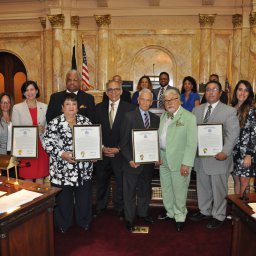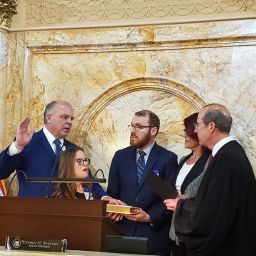TRENTON – Legislation sponsored by Senator M. Teresa Ruiz to help develop appropriate models and guidance for school districts to identify gifted and talented English Language Learner (ELL) students through their performance was approved today by the Senate Education Committee.
The bill, S-2808, would require the commissioner of the Department of Education to develop guidance for school districts on identifying English Language Learners who are gifted and talented in order to match them with programs that will help them achieve to their fullest capabilities and provide guidelines on appropriate identification methods that may help reduce the underrepresentation of ELLs in gifted and talented programs in grades kindergarten through 12 in an effort to reduce underrepresentation of this student population.
“Children deserve to be challenged academically every day and to learn to their fullest potential. In many cases the students of the English Language Learners program are not considered for the gifted and talented program because they cannot verbally express themselves or do so at the same level as their peers. This legislation seeks to give the opportunity to English language learners to benefit from the program regardless of their fluency in the English language,” said Senator Ruiz, Chair of the Senate Education Committee. “It will give those who have very high intellectual abilities the opportunity that those currently in the gifted and talented program have to develop their abilities and make use of them.”
Under the bill, the guidance would include information on recognizing and addressing potential challenges in the process of identifying gifted English language learners; the use of multiple methods and measures in assessing the eligibility of English language learners for gifted and talented programs; and the importance of professional development and collaboration among teachers in the identification process, including teachers of English language learner programs, teachers of gifted and talented programs and general classroom teachers.
In the U.S. there are roughly 3 million students who are identified as gifted. New Jersey had no data available in the National Association for Gifted Children’s report State of the States in Gifted Education on the number of gifted and talented students or ELL gifted and talented students. The report also found that “the degree of attention needed” for the “inclusion of underrepresented students in gifted education” which include ELLs was “in need.”In addition the report found that there was no State-mandated training or professional development requirements on identification of gifted and talented students in general.
The bill was approved by the Senate Education Committee with a vote of 4-0 and next goes to the full Senate for consideration.














